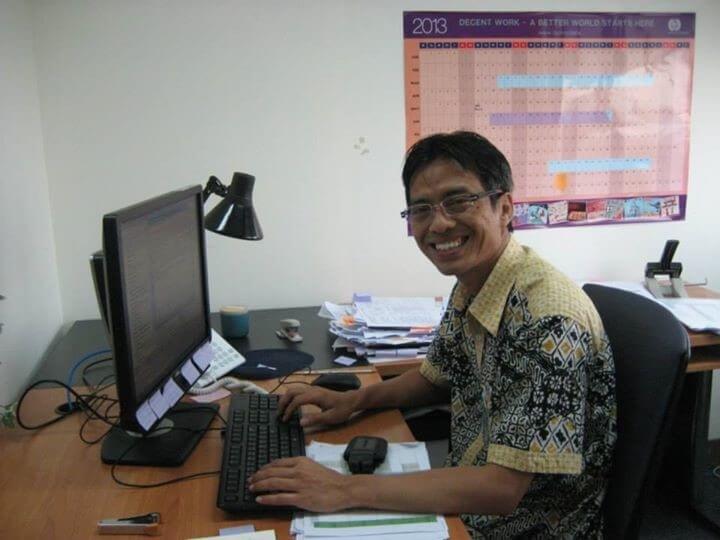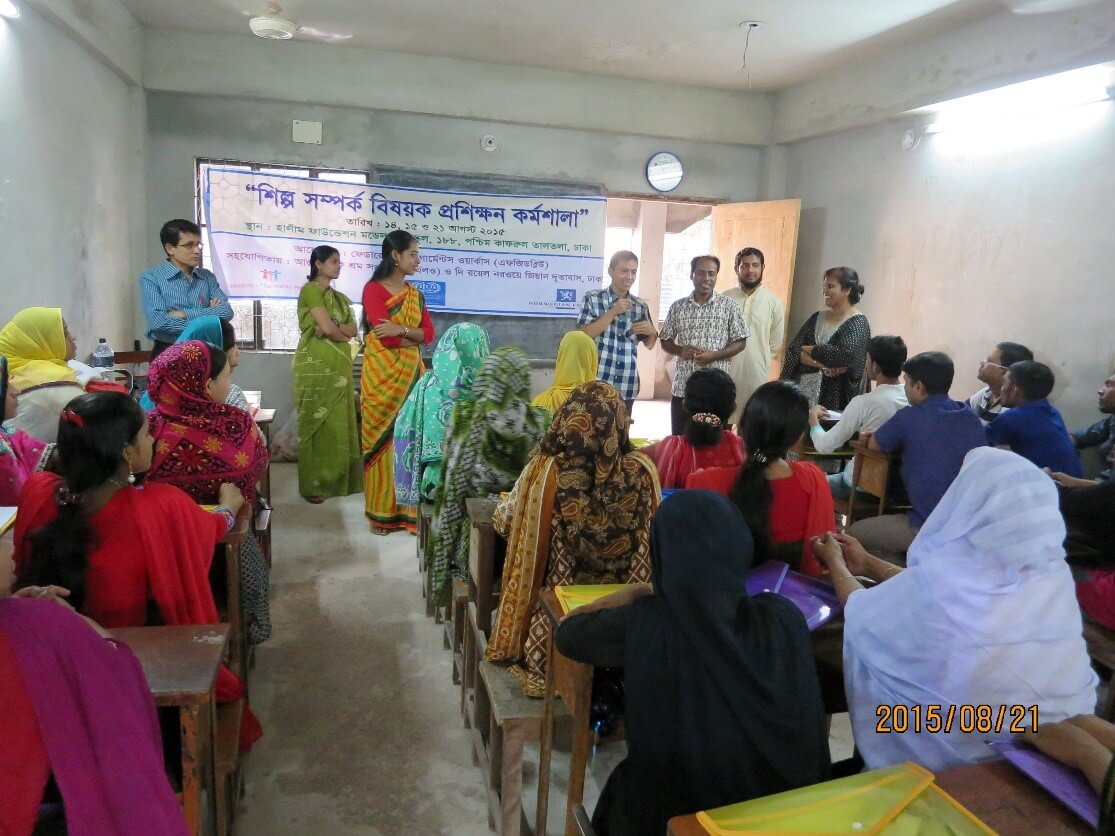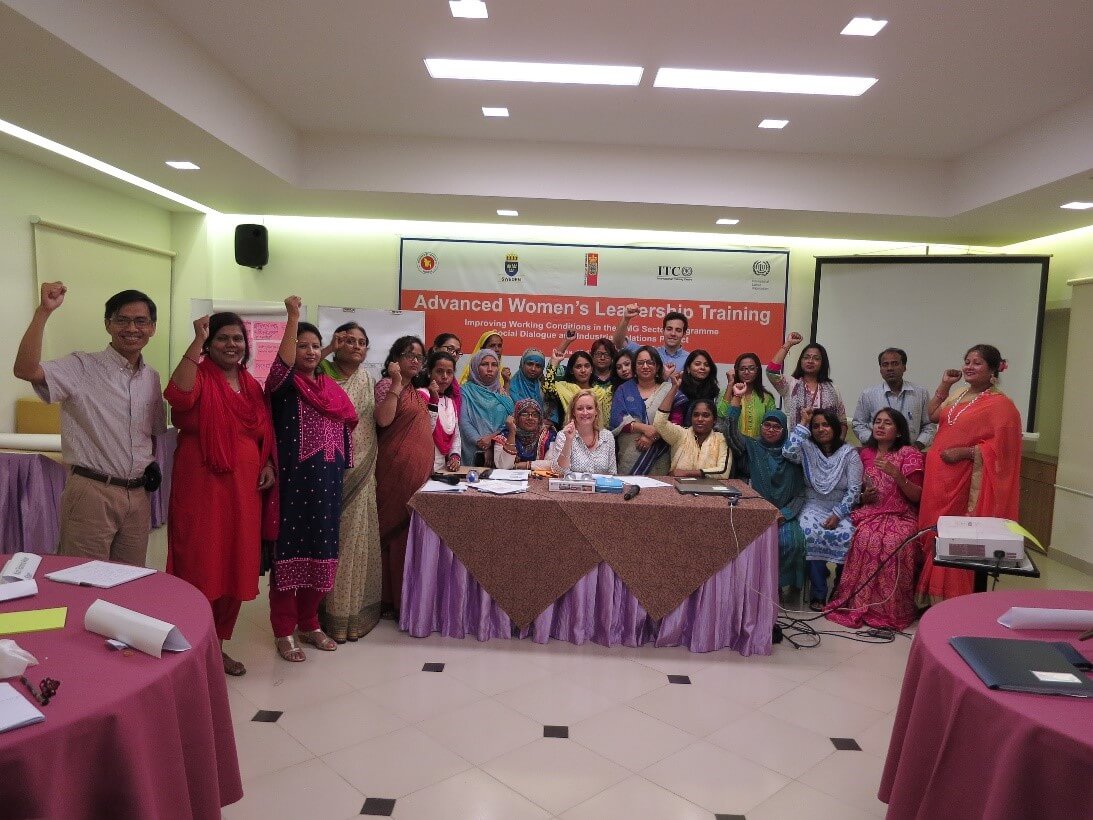
Tauvik Muhamad (MPA 2007)
Workers Education Expert, International Labour Organization Country Office for Bangladesh
There is a saying “Poverty anywhere constitutes a danger for prosperity everywhere”. That is what I believe in. That is why I enjoy working at the International Labour Organization (ILO), because the mission of the institution is pursuing social justice through decent work, which is in line with what I believe.
[ALUMNI-INFO TEXT="I know this is not an easy job and this will be a long journey. But we have to try and the journey has to begin with the first step. And above all, I would like to contribute to making a change.
In Bangladesh, I have been a Workers Education Expert for the past three years. I work with projects that set out to improve working conditions in the Ready Made Garment (RMG) sector as well as boost social dialogue and industrial relations.
Prior to joining the ILO in Bangladesh, I worked with ILO in Indonesia dealing with various issues related to post-tsunami crisis response, HIV and AIDS, social protection, indigenous people, women’s entrepreneurship development, post-conflict local economic development as well as poverty reduction. Under these projects I worked closely with stakeholders from the government as well as employers’ and workers’ organizations to carry out policy formulation, pilot projects, and programme interventions. In addition, I spent a short time at the ILO Regional Office for Asia Pacific in Bangkok, Thailand.
Before I joined ILO I was involved in the trade union movement while working for international banks HSBC and BNP Paribas. I was elected an executive committee member of the National Trade Union Federation in the banking, media and telecommunication sector that I co-founded after political reform and democratization in Indonesia in the late 1990s."][/ALUMNI-INFO]
[ALUMNI-QUOTES TEXT="In my present role, I am responsible for developing a workers’ education programme to build awareness on workers’ rights and the institutional capacity of trade unions in the country. Work focusses on the garment sector following the collapse of the Rana Plaza building the led to the loss of over 1,110 lives of mainly garment workers in 2013.
The garment sector is among the biggest contributors to Bangladesh GDP, employing around 4 million workers and providing women–particularly from rural areas—jobs that help them both support their families as well as gain financial independence. However, their working conditions and labour rights need to improve. Unions can play an important role in this regard if they are able to organize effectively and to bargain collectively.
I find that dealing with industrial relations in a country which features prominently in the global supply chain is very challenging. There are very few trade unions in enterprises who can represent workers concerns and stand up for their rights, including their right to safe workplaces. In addition there are negative perceptions and attitudes against trade unions."][/ALUMNI-QUOTES]
We also need to have “buy-in” from various stakeholders: government, social partners of employers’ organizations and workers’ organizations. In some cases, they have competitive concerns and interests.
These challenges have pushed me to seek to find a win-win solution that is acceptable for all of these constituents. In special cases we need to include other groups such as non-government organizations, indigenous peoples, people living with HIV and AIDS, people with disabilities or women’s groups.

LKY School not only taught me about theoretical frameworks but also how to apply them in reality. Singapore is like a big laboratory where you can learn how the market and government are able to complement and support each other for the public good and to boost welfare.
I gained valuable knowledge and development from lectures, group work and participatory discussions from amazing, inspiring professors such as
Prof. Kishore Mahbhubani,
Prof. Mukul Asher, Dr. Darryl S.L. Jarvis, and Dr. Scott Fritzen. The “Three Things” method and “Strategic Triangle” model taught by Prof. Mahbhubani and Dr. Fritzen respectively have provided me with both the theoretical framework and practical tools needed to develop clearer and more solid ideas as well as better capacity to convey and share my point of view effectively.
One of the opinion-editorial pieces that I wrote for the Jakarta Post based on “Three Things” approach was on a proposal to remove oil subsidies, which was in opposition with public opinion and the opinion of the House of Representatives. I later learnt from a colleague that the piece was used as one of the references for the vice president’s internal morning staff meeting.
Being a graduate from such a reputable school as LKY School also helped me get a position as a lecturer at the Paramadina Graduate School of Diplomacy and International Strategic Policies in Jakarta and obtain an international post and career within the ILO. After working for several years in Jakarta, I was promoted to my current post with the ILO in Bangladesh. I am proud of this achievement as to date, there have only been three Indonesian officers who have climbed the ladder to become international professional staff in ILO.

What was the proudest moment in your career?
There were two moments. Firstly, when I managed an HIV and AIDS project in Indonesia. The project succeeded in bringing all key labour actors from businesses, governments and trade unions to sign and declare their commitment to a national tripartite commitment on HIV and AIDS, aimed to advocate for a non-discriminatory policy, as well as the need for enterprises to have workplace programmes on HIV and AIDS. The commitment in Indonesia was declared and established before the global commitment on similar issues. This commitment paved the way for issuing a national policy framework and a Ministerial Decree on HIV and AIDS Prevention in the Workplace and technical cooperation projects on the issue for Indonesia.
Secondly, when two main groups of unions in Bangladesh, the National Coordination Committee for Workers Education (NCCWE) which is an apex body of 11 national centres and IndustriALL Bangladesh Council (IBC), an organization with 15 RMG sectoral unions agreed to establish a Workers’ Resource Centre for the Ready Made Garment sector that I initiated. This trade union hub serves as a joint platform to create space for advocacy work and provides resources for capacity building and services to address union fragmentation. It also helps establish free, professional and democratic unions and collective bargaining.
What do you miss most about the LKY School?
I miss the beautiful LKY School campus in Bukit Timah. I also miss the learning environment at the school. The lectures, discussions and friendships from diverse cultures of more than 16 countries provided me with a lifetime of learning experiences. Studying at the school with its international lecturers and classmates was like the veritable Tower of Babel, giving me a fully-fledged professional network across many countries.
Whenever I have had a chance to meet with former classmates and talk about our time in Singapore, we always refer to it as one of the best times of our lives.
What would you say to young people pursuing a career in the non-profit sector?
We have to fully understand that working in the non-profit sector means that we deal with people and that we should put them firmly at the centre. The most important thing is to build your passion and to understand challenges and issues faced by those who are “voiceless”, those who have no power to voice their concerns and aspirations. So the ultimate goal should be how we can help disadvantaged and vulnerable people to benefit from what we do and what we work for.